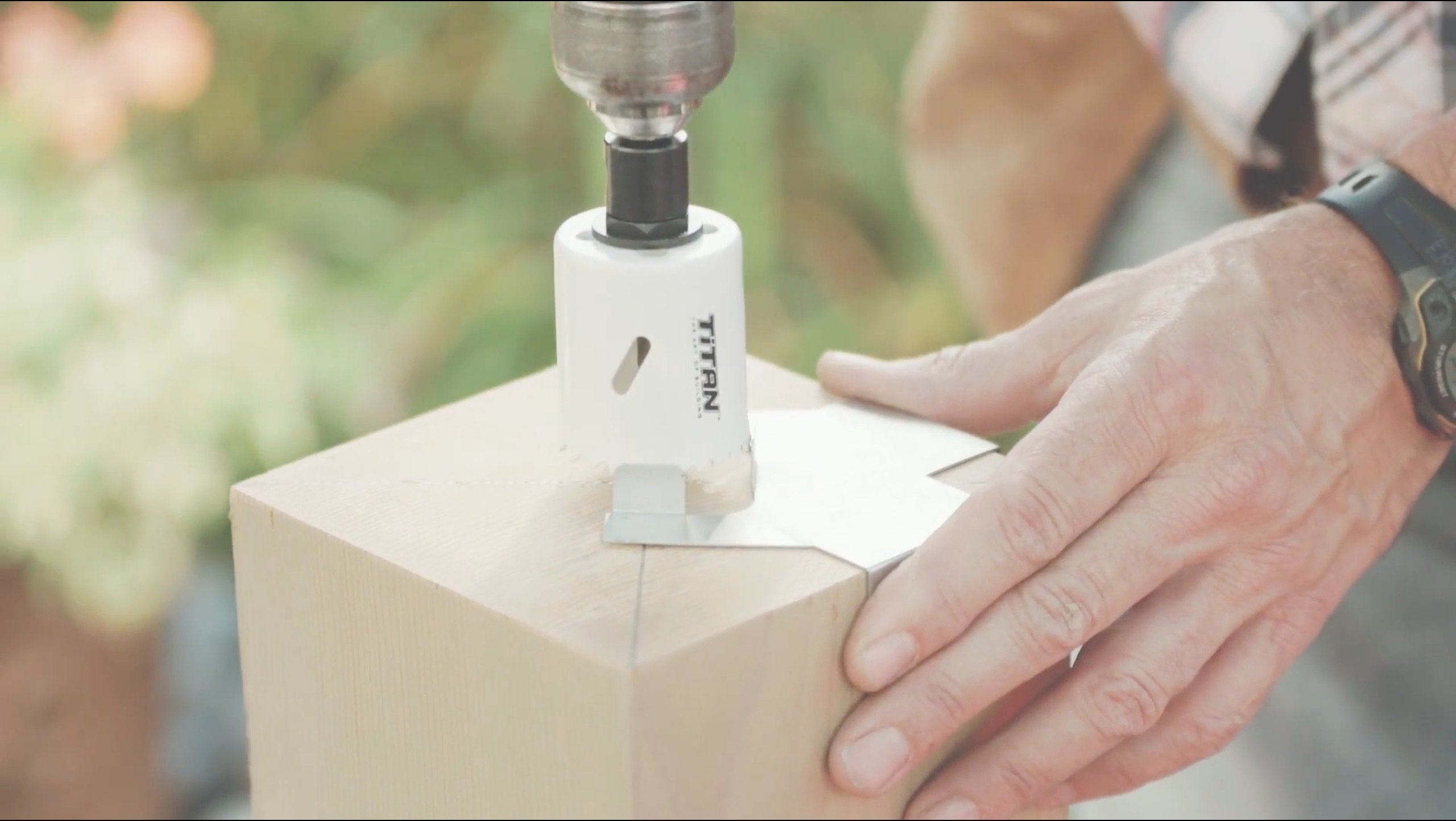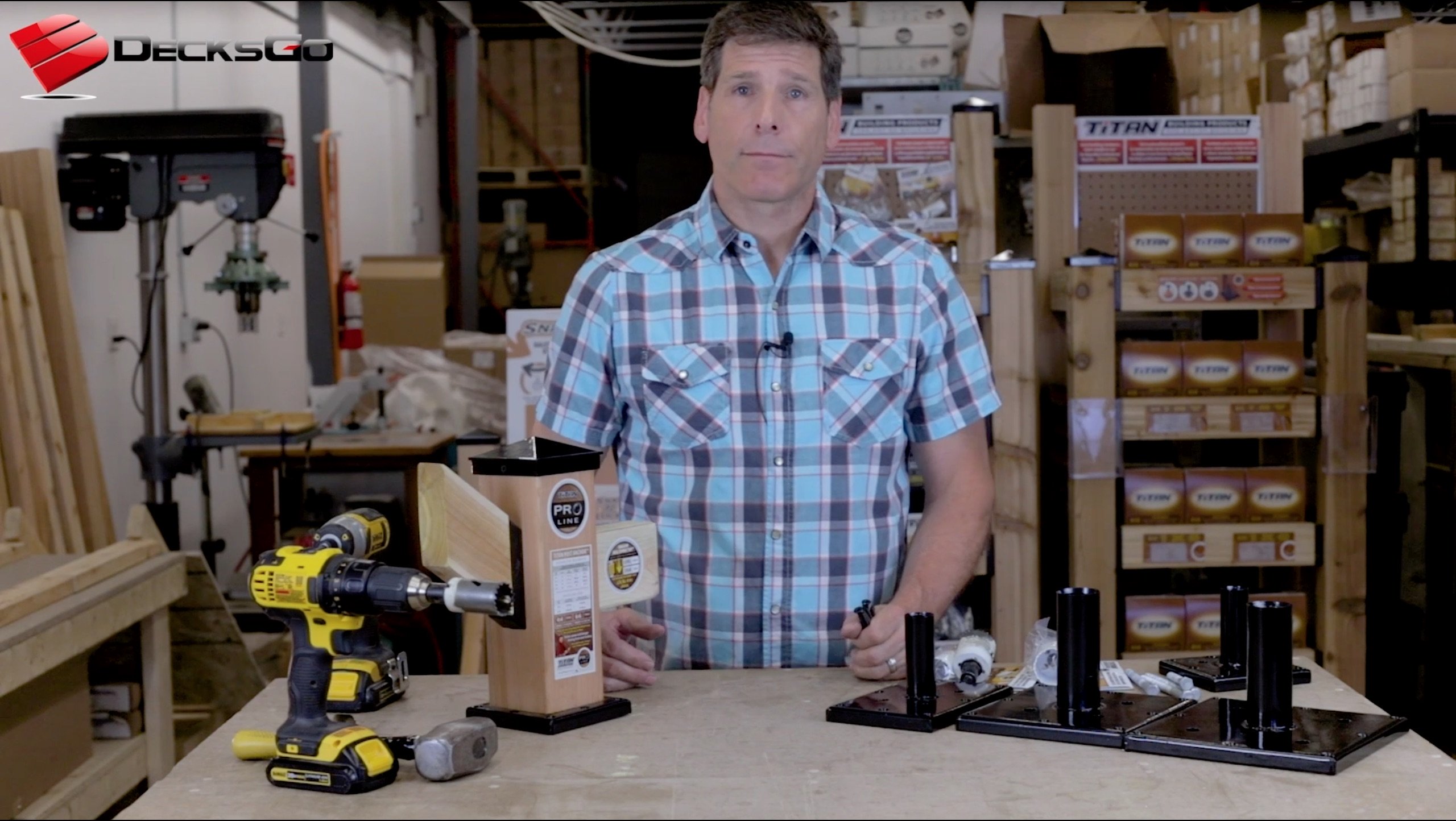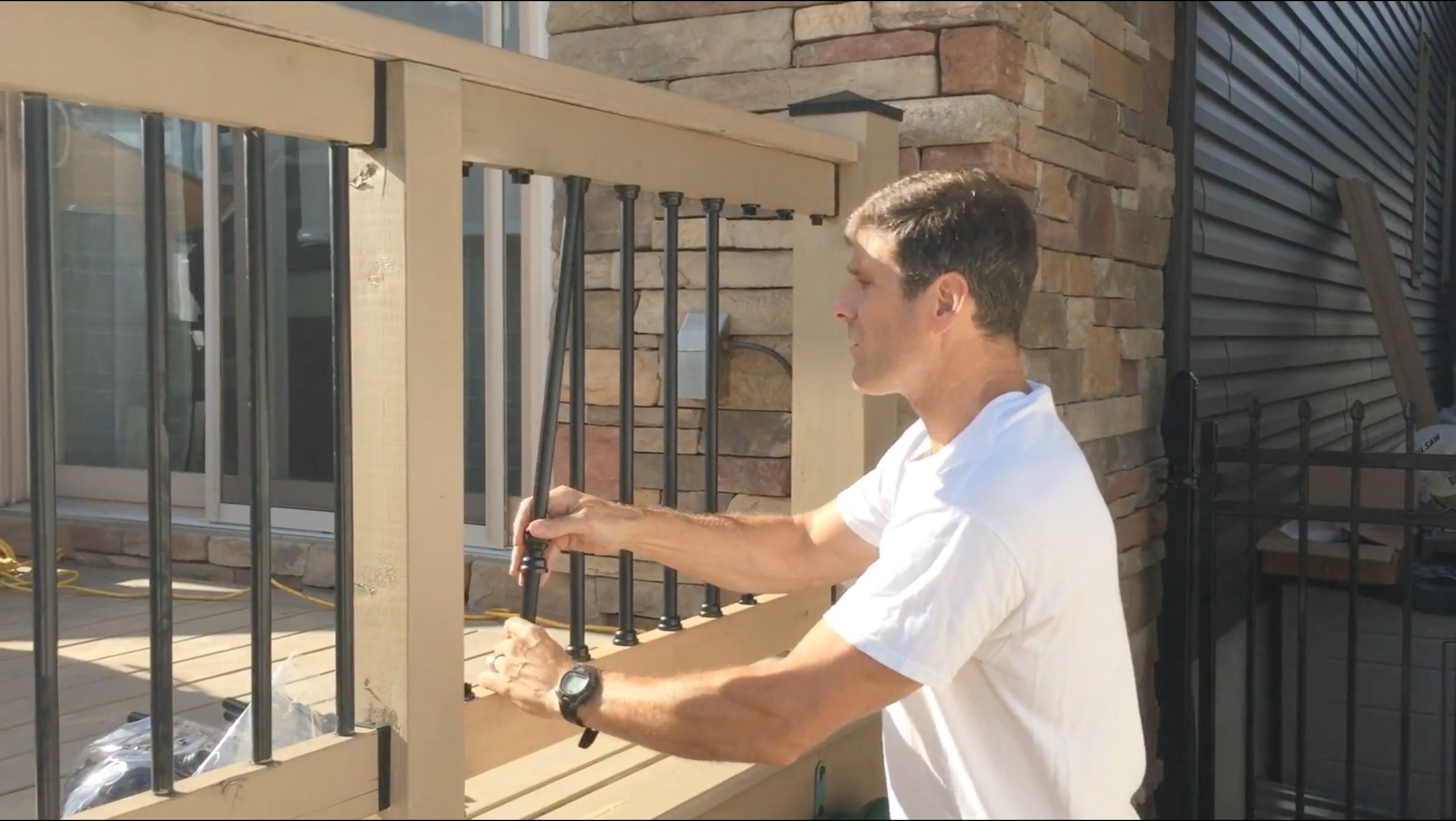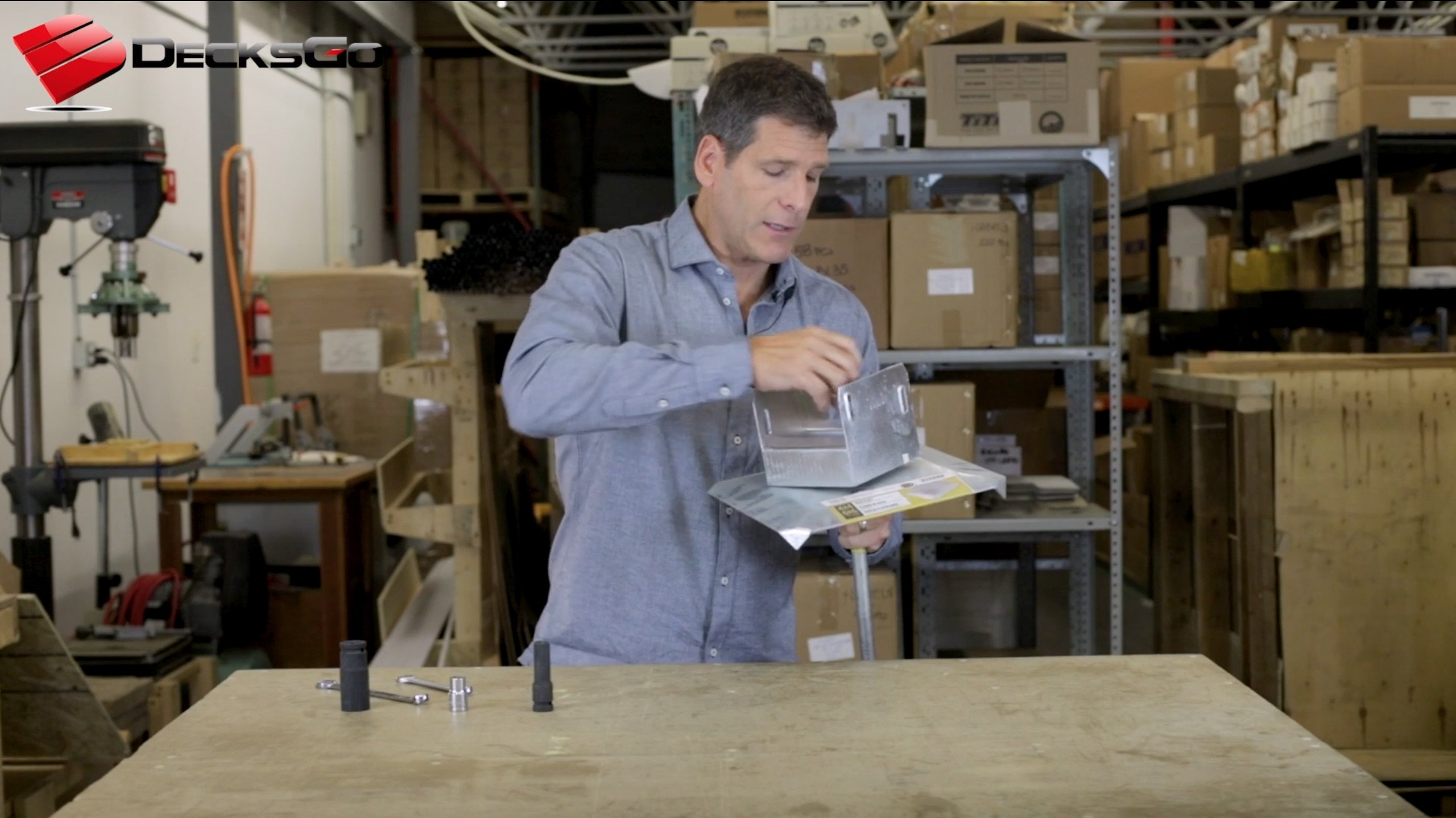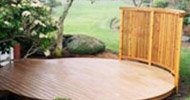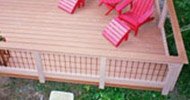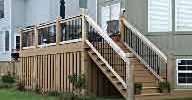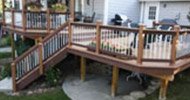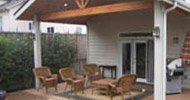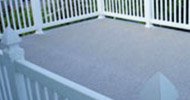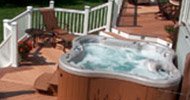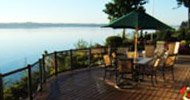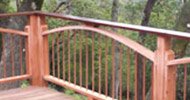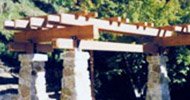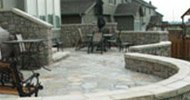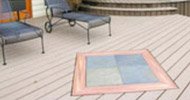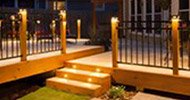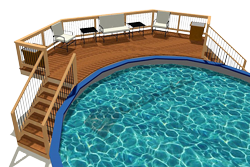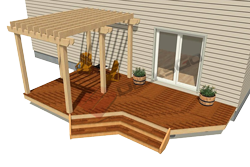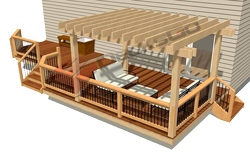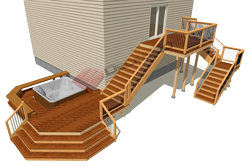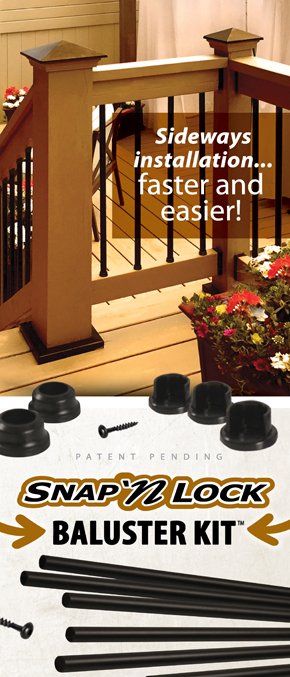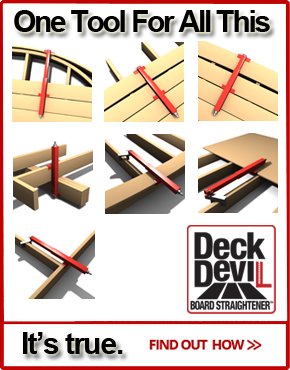Cedar vs. PT vs. Composite and 2x6 vs 2x10
by AVSnore
(Chicago)
My 16 x 18 deck needs to be rebuilt. I had three builders come out.
Guy #1 says cedar isn't worth the expense. It's too soft; and you can't get good cedar anymore. PT is the only way to go, if you're going to do wood. Guy #2 says PT is no good. It's too wet; it will split & crack. He won't warranty it.
I'd prefer composite, truth be told. Both #1 and #2 said they could put composite down over existing joists (2x6). But Guy #3 says no way, he'd use 2x10's, so his quote is way more.
Don't know who to believe now. I'm not a cheapskate, but I don't want to spend any more than I have to. What say?
Editor's Comments
There is a mix of truth in these comments and I can see why it is confusing. Let's start at the beginning.
Cedar
Cedar is softer than the typical woods like pine used in pressure treated lumber. It must be maintained annually - this business of being able to stain every two or three years is nonsense in my experience. After two or three years it will be looking quite worn.
So a minimum clean, wash is required each season and probably a light sand and light recoat of your stain that you used.
Also it is harder to find good cedar these days. You certainly will not find it at the box stores like Home Depot or Lowes. They buy the lowest quality cedar for the cheapest prices and it shows.
You will have to find a local lumberyard, probably a family business that has been sourcing from the best mills on the west coast for decades. Low quality cedar will not perform as well as grades with fewer and tighter knots.
Pressure Treated Lumber
Pressure treated has some benefits but beware the pitfalls depending on the type of wood, grade and treatment. The species are usually lower grade, like some of the hem-fir and even spruce species usually identified by the incise cut marks on the lumber.
They need to incise (cut) the lumber to allow the preservative to penetrate deeper.
So these species can be prone to splitting an cracking and twisting and warping more so that more stable lumber like cedar. So you have to also care for it and not let it dry out excessively.
Southern yellow pine grows fast and some of the growth rings are 1/4" or more. So it can be quite unstable also. But you can also get some that actually has tighter grain and it will be a bit more stable. It is a harder wood and a great performer if preserved right.
Again, low quality material,low grade etc will mean its likely to warp and twist a lot if it dries out to quickly.
There is a new type of PT that looks good. Its called Yella wood. And it is southern pine and heat treated so the sugars are removed. Looks very nice. I am intrigued by this and it shows promise.
Composite Lumber
Composite materials have really advanced. They are now making capped stock, sealed with a hard surface material on three sides, sometime four sides. The ends can expand and mushroom if not sealed so be forewarned. But generally the consumer today is far, far better off with these new generation composite materials than twenty years ago.
They cost a lot however. In fact as much or more than some of the proven exotic hardwoods. Search for my article on kayu
as a great economic and physical performer. So when a company says they guarantee a composite board for 25 years it is faith you are going on even though it may be true because the material is only 5 years on the market.
Joist Sizes
Joist sizes for floor decks should be a minimum of 2x8. 2x10 is fine and homes are often built with them to increase the span. Engineers will specify joist size unique to each home that is built. But no one builds decks with 2x6 anymore. The codes do not allow it. You may still see it occasionally but probably only on jobs not subject to inspection.
2x6 joists will not span as far nor will the structure feel as solid as comparable 2x8 joists. So when your builder says only 2x10 is what he uses, that is fine. Probably not needed but he is not cheating you.
Hope this helps you out a bit.
Comments for Cedar vs. PT vs. Composite and 2x6 vs 2x10
|
||
|
||
